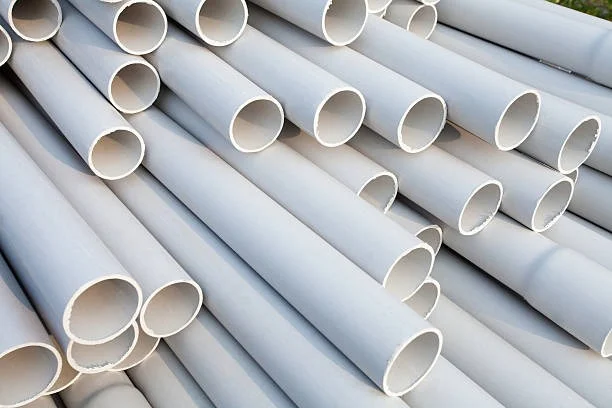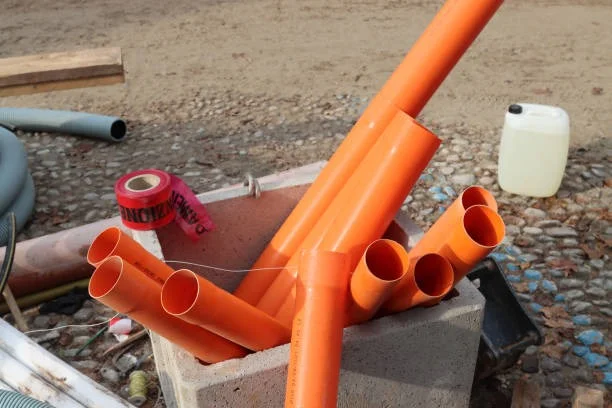Best Plastic Pipes for Water

If you are wondering about the pipes for water in Pakistan, then you have come to the right place.
Here is a complete guide about the pipes for water in Pakistan. keep reading!
One of the most important factors to consider when buying pipes for your home’s plumbing system is whether or not you want to buy plastic pipes or galvanized steel pipes and fittings.
Both options have their pros and cons, and what’s best for you depends on your individual needs, preferences, and wants.
For example, if you want to reduce your exposure to chemicals as much as possible, you may prefer to buy plastic pipes since they’re non-porous and don’t hold on to sediment or germs nearly as well as other pipes and fittings types do.

What are Plastic Pipes?
Plastic pipes are made from a variety of materials, the most common being polyvinyl chloride (PVC), chlorinated polyvinyl chloride (CPVC), and polyethene (PE).
Plastic pipes are used in a wide range of applications, including sewage, drainage, and water supply.
Plastic pipes have several advantages over other types of pipes, including being lightweight, corrosion-resistant, and easy to install.
What are the 3 main types of plastic pipes for water?
There are three main types of plastic pipes for water:
- PVC
- CPVC
- PEX
Each has its advantages and disadvantages. For example, the pipes in Pakistan were built over 50 years ago and they are starting to crack.
High-quality plastic Pipes in Pakistan are a good solution because these pipes do not contain lead and will not break easily.
The plastic pipes for water in Pakistan would be easy to install and provide consistent water pressure at all times.
PVC
PVC is cheaper than CPVC or PEX but it can deteriorate faster than other plastics if not properly taken care of.
It is also susceptible to chemicals such as chlorine or fluoride which can cause damage to the piping material.
However, PVC has high resistance against corrosion from acid gases like sulfur dioxide that may arise from natural sources such as volcanoes or human-made sources such as gas leaks from cars.
One benefit is that PVC does not need special tools for installation which means less cost when installing plastic pipes in Pakistan.
CPVC
CPVC is more expensive than PVC, but it offers better chemical resistance.
When exposed to certain chemical compounds, CPVC starts with reduced chemical activity on the plastic surface.
In addition, this type of plastic is more durable than PVC and requires no special tools for installation making it one of the pipes in Pakistan.
PEX
PEX was created by research engineers in Canada back in 1956. It’s made from polyethylene cross-linked with a formaldehyde binder system.
Despite being an alternative plastic, it is more expensive than both PVC and CPVC due to its durability and performance qualities.
The most common application of PEX is for hot water distribution lines so this type of plastic pipe could work well for hot showers too!
Which plastic water pipe is best?
There are many factors to consider when choosing the best plastic pipe for water in Pakistan.
Climate, water quality, and installation ease are just a few.
To help you make an informed decision, we’ve compiled a list of the pros and cons of the most popular types of plastic pipes. First up is PVC.
PVC has been used for plumbing systems since the 1930s, making it one of the oldest plastics around.
However, while it is durable and easy to install- this may not be enough to justify its use over newer plastic pipes like PE.
It is important to note that PVC will typically degrade faster than other plastics if not properly cared for (i.e., checked for leaks).
It also can’t be used with drinking water because it contains small amounts of toxic compounds called chlorides which can cause health problems if ingested over time.
What type of plastic pipe is used for water?
Different types of plastic pipes are used for different applications. The most common type of plastic pipe used for water is PVC or polyvinyl chloride.
PVC pipes are strong and durable, making them a good choice for both indoor and outdoor use. PVC pipes are also resistant to corrosion and chemicals, which makes them ideal for carrying potable water.
However, PVC pipes are not the only type of plastic pipe that can be used for water; other options include PE (polyethylene) and PP (polypropylene) pipes.
Each type of plastic pipe has its advantages and disadvantages, so it’s important to choose the right one for your needs.
Are plastic water pipes better?
Plastic water pipes have been used in Pakistan for many years.
Some argue that they are the best type of plastic pipes for water use, while others believe that metal pipes are a better option.
Here, we will take a look at the pros and cons of plastic pipes to help you decide which is the best type of pipe for your needs.
Pros and Cons of plastic pipes for water
Many types of plastic pipes are available in Pakistan. Each type has its own set of pros and cons that need to be considered before making a decision.
Here is a look at the best plastic pipes for water in Pakistan, as well as their pros and cons.
Pros
- The pipes in Pakistan are lightweight and easy to install, but they can’t handle high pressure as steel pipes can.
- They’re not too expensive but the cost will increase if you require a higher level of quality.
- If you want something more durable or customized then steel might be better suited for your needs.
Cons
- One con with these pipes is that they cannot handle high pressure as steel pipes can.
- Another con with these pipes is that the price will go up if you want something durable or custom-made.
- The third con with these particular pipes is that it’s difficult to find them outside of the country so when buying from online shops make sure to check whether it’s going to ship internationally or not!
Conclusion Plastic Pipe for Water
There are pros and cons to using plastic pipes for water. The pros are that they’re cheaper than metal pipes for water, they’re lighter in weight, and they’re easier to install.
The cons are that they’re more susceptible to leaks and they can’t be recycled.
Ultimately, the decision of whether or not to use plastic pipes for water depends on your specific needs and situation.

In Pakistan, the choice of pipes for water supply is crucial, considering factors like durability, cost-effectiveness, and resistance to corrosion. Plastic pipes, including PVC, CPVC, and PEX, offer compelling advantages in this regard. PVC pipes, while economical, may degrade faster without proper care, but they excel in resisting corrosion from acid gases. CPVC, though pricier, boasts superior chemical resistance and durability, requiring no specialized tools for installation. PEX, with its cross-linked polyethylene composition, offers excellent performance in hot water distribution systems. Each type presents a unique balance of strengths and considerations, empowering users to make informed decisions tailored to their specific needs and circumstances.
Frequently Asked Questions About Best Plastic Pipes for Water
- What are the pipes for the water supply?
- The pipes for water supply typically include options like PEX (cross-linked polyethylene), PVC (polyvinyl chloride), and HDPE (high-density polyethylene) pipes, known for their durability, corrosion resistance, and affordability.
- How do I choose the right plastic pipes for my water project?
- Consider factors such as the intended use, water pressure, local building codes, and budget. Consulting with a professional plumber or contractor can help you make an informed decision.
- Are PEX pipes a good choice for water supply?
- Yes, PEX pipes are a popular choice due to their flexibility, resistance to corrosion, and ease of installation. They are suitable for both cold and hot water applications.
- What are the advantages of PVC pipes for water supply?
- PVC pipes are lightweight, cost-effective, and resistant to corrosion and chemicals. They are often used for cold water supply lines and irrigation systems.
- Are HDPE pipes suitable for potable water?
- Yes, HDPE pipes are approved for potable water applications. They are highly durable, have a long lifespan, and are resistant to chemical contaminants.
- What is the difference between CPVC and PVC pipes for water supply?
- CPVC (chlorinated polyvinyl chloride) pipes are designed for hot water applications, while PVC is used for cold water. CPVC can withstand higher temperatures.

